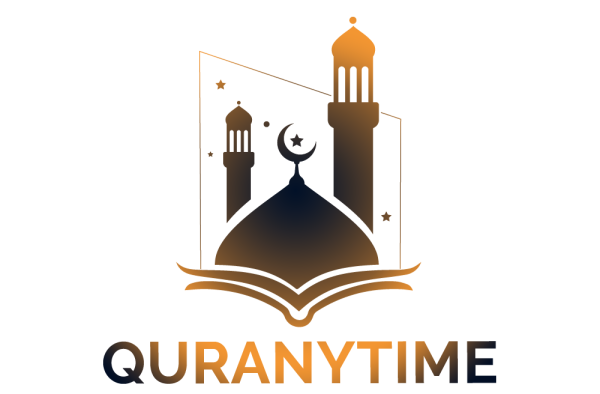Welcome to our comprehensive guide to learning Arabic, where we unlock the secrets of this captivating language. Arabic is one of the oldest languages in the world, with a rich cultural heritage and a global presence. Whether you’re drawn to its poetic beauty, interested in exploring Arabic literature, or seeking career opportunities in the Middle East, this guide will equip you with the necessary tools to embark on your Arabic language journey.
In this guide, we will break down the complexities of Arabic grammar, introduce you to the unique sounds and script of the language, and provide valuable tips and resources to help you master its nuances. We will also delve into the cultural and historical context behind the Arabic language, enhancing your understanding and appreciation of this ancient tongue.
Learning a new language can be a challenging yet rewarding experience, and our aim is to make your Arabic language learning journey enjoyable, accessible, and effective. So, whether you’re a beginner or already have some basic knowledge, join us as we demystify Arabic and take your language skills to new heights. Let’s dive in!
Why learn Arabic?
Arabic is the fifth most spoken language in the world, with over 420 million speakers across different countries. It is not only the language of the Quran but also the official language of 22 countries, including Egypt, Saudi Arabia, and the United Arab Emirates. Learning Arabic opens up a world of opportunities for business, travel, and cultural exploration.
Understanding Arabic can also provide insights into the rich history and diverse cultures of the Middle East. It allows you to connect with people on a deeper level and gain a nuanced understanding of their traditions, customs, and values. Whether you’re interested in pursuing a career in diplomacy, journalism, or international relations, Arabic language skills can significantly enhance your professional prospects.
Moreover, learning Arabic can be a gateway to exploring Arabic literature, poetry, and music. The Arabic language has a long history of producing some of the most influential literary works, from the works of Ibn Arabi and Al-Mutanabbi to contemporary authors like Mahmoud Shaker. By learning Arabic, you can access a treasure trove of literature and gain a deeper appreciation for the beauty of the written word.

Arabic language statistics and importance
Arabic is a Semitic language that belongs to the Afro-Asiatic language family. It has a unique script known as the Arabic alphabet, which is written from right to left. While Modern Standard Arabic (MSA) is the formal written language used in literature, media, and formal settings, there are also numerous dialects of Arabic spoken across different regions.
The importance of Arabic cannot be overstated. It is the liturgical language of Islam and is used for religious purposes by Muslims worldwide. The Quran, the holy book of Islam, is written in Classical Arabic, and Muslims strive to learn and understand Arabic to deepen their connection with their faith.
Arabic is also a language of diplomacy, with the Arab League using it as its official language. Many international organizations, including the United Nations, have Arabic as one of their official languages. This highlights the significance of Arabic as an influential language on the global stage.

Different dialects of Arabic
Arabic dialects vary across different regions, and while Modern Standard Arabic serves as a common language for formal communication, it is essential to familiarize yourself with the dialect spoken in the specific region you plan to visit or work in. Some of the most widely spoken Arabic dialects include Egyptian Arabic, Levantine Arabic, Gulf Arabic, and Moroccan Arabic.
Each dialect has its unique characteristics, vocabulary, and pronunciation, making it important to understand the differences. While learning a specific dialect may take time and effort, it will greatly enhance your ability to communicate effectively with native speakers and immerse yourself in local cultures.
Arabic alphabet and pronunciation
The Arabic alphabet consists of 28 letters, each with its distinct shape and sound. Learning to read and write Arabic can be a challenge, especially for those accustomed to languages with the Latin alphabet. However, with practice and patience, you can become proficient in recognizing and writing Arabic script.
The pronunciation of Arabic can also be challenging due to the presence of unique sounds that may not exist in other languages. Sounds like “ayn” and “ghayn” require the use of the throat and can be difficult for non-native speakers to master. However, with consistent practice and exposure to native speakers, you can improve your pronunciation and develop an ear for the nuances of the language.

Basic Arabic grammar and sentence structure
Arabic grammar may appear complex at first, but once you grasp the fundamental rules, it becomes easier to form sentences and express yourself effectively. Unlike English, Arabic has a different word order, with the verb typically placed at the beginning of the sentence. Nouns and adjectives agree in gender, number, and case, adding further complexity to the language.
Understanding the basic grammar rules, such as verb conjugation, noun declension, and sentence structure, is crucial for building a strong foundation in Arabic. By practicing regularly and using context-specific examples, you can gradually gain confidence in constructing grammatically correct sentences.
Essential Arabic vocabulary and phrases
Building a solid vocabulary is key to becoming fluent in any language, and Arabic is no exception. Start by learning common Arabic words and phrases that are used in everyday conversations. Basic greetings, numbers, and essential vocabulary related to food, transportation, and daily activities will allow you to communicate effectively in various situations.
It’s also helpful to familiarize yourself with Arabic idioms and expressions that are commonly used by native speakers. These idiomatic phrases add color and depth to your language skills, making your conversations more natural and authentic.
Tips for learning Arabic effectively
Learning a new language requires dedication, consistency, and the right approach. Here are some tips to help you learn Arabic effectively:
1. Immerse yourself in Arabic: Surround yourself with Arabic language materials, such as books, newspapers, movies, and music. This exposure will help you become familiar with the language’s nuances and improve your listening and comprehension skills.
2. Practice speaking: Find language exchange partners or join Arabic-speaking communities to practice speaking. Regular conversations with native speakers will enhance your fluency and confidence.
3. Use technology: Take advantage of language learning apps, online courses, and language exchange platforms. These resources provide interactive exercises, pronunciation guides, and opportunities to practice with native speakers.
4. Set realistic goals: Break down your language learning journey into achievable goals. Start with small milestones and gradually work your way up to more complex language skills.
5. Be consistent: Dedicate regular time to practice Arabic, even if it’s just a few minutes each day. Consistency is key to making progress and retaining what you’ve learned.
Remember, learning a language takes time and effort, so be patient with yourself and celebrate your achievements along the way.
Resources for learning Arabic - books, apps, and online courses
Fortunately, there are numerous resources available to help you learn Arabic. Here are some popular books, apps, and online courses to consider:
Books:
– “Arabic for Dummies” by Amine Bouchentouf: A beginner-friendly guide that covers the basics of Arabic grammar, vocabulary, and pronunciation.
– “Alif Baa: Introduction to Arabic Letters and Sounds” by Kristen Brustad, Mahmoud Al-Batal, and Abbas Al-Tonsi: A comprehensive introduction to Arabic script and pronunciation.
– “The Arabic Language” by Kees Versteegh: A linguistic exploration of the Arabic language, its history, and its dialects.
– “madinah Arabic”
-“ArabicforAll“
Apps:
– Duolingo: A popular language learning app that offers Arabic courses for beginners. It provides interactive exercises, vocabulary practice, and progress tracking.
– Rosetta Stone: Known for its immersive language learning approach, Rosetta Stone offers Arabic courses for all levels, focusing on pronunciation, vocabulary, and grammar.
– Memrise: This app combines spaced repetition with engaging content to help you memorize Arabic vocabulary and phrases.
Online Courses:
– Quranytime institute: A platform that offers audio and video lessons for learners of all levels. It covers various topics, including grammar, vocabulary, and cultural insights.
– Mango Languages: Mango Languages provides interactive Arabic courses with a focus on conversation skills and cultural knowledge.
– Coursera: Several universities offer Arabic language courses on Coursera, allowing you to learn at your own pace with expert instructors.
Explore these resources and find the ones that align with your learning style and goals. Remember to supplement your studies with consistent practice and exposure to native speakers for a well-rounded learning experience.
Conclusion and encouragement to start learning Arabic
Congratulations on taking the first step towards unlocking the secrets of the Arabic language! In this comprehensive guide, we have explored the importance of learning Arabic, the different dialects, the Arabic alphabet, grammar, vocabulary, and provided valuable tips and resources to support your language learning journey.
Learning Arabic can open doors to new opportunities, both personally and professionally. It allows you to connect with a vibrant community of Arabic speakers, delve into rich cultural traditions, and gain a deeper understanding of the Middle East.
Remember, language learning is a marathon, not a sprint. Embrace the challenges, stay motivated, and celebrate every milestone along the way. With consistent effort, dedication, and an open mind, you can master the Arabic language and embark on a lifelong journey of discovery.
So, what are you waiting for? Start learning Arabic today and unlock a world of possibilities!

